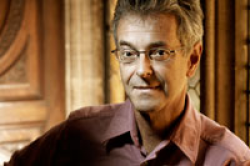Baron Professor John Krebs

- Born
- 11 April 1945
Baron Professor John Krebs is renowned for his work on how birds remember where they have hidden their seeds. He is well known for helping to shape public policy and has spoken about a wide range of topics from badger culling to organic foods.
Krebs originally wished to study archaeology at University, however his father, the biochemist Hans Krebs wanted him to study medicine instead. His application for medicine was rejected but Hans Krebs was still keen to steer his son into a scientific career. Noticing John’s love of bird watching, he used his connections to create an internship for John with the future Nobel prize winner Konrad Lorenz. Krebs describes this as a ‘wonderful summer’ in Germany and it ignited his passion for zoology, which he studied at Pembroke College, University of Oxford.
His most famous work concerns the memory of birds, and how they are able to scatter seeds in different places during the winter, for consumption during periods of hardship. Fuelled by a paper from a Norwegian ornithologist that claimed that birds could not possibly remember the location of every seed they stored, Krebs turned his attention to this conundrum, and collaborated with David Sherry from the University of Toronto. They investigated this problem in the field and laboratory and were able to demonstrate that birds, such as the marsh tit, do not retrieve seeds by chance, but instead possess a remarkable memory and are able to locate seeds to consume in the future.
Krebs, intrigued by this discovery, moved into neuroscience, and took sections from the brains of seed storing birds and non-seed storing birds. There were dramatic differences in the part of brain that processes spatial memory.
In the 1990s Krebs moved away from research, into science policy, and was the first Chairman of the Food Standards Agency from 2000 to 2005. In 2003 he stated that organic food was no better for us than food grown on ordinary farms.
Krebs led the randomised trials in badger culling, to see how effective this was at controlling the spread of bovine TB and after examining the data, concluded that culling is “not the best way forward”.
Krebs has held many other posts, He now sits on the House of Lords as an independent cross-bencher, is on the UK Climate Change Committee and is a trustee of the Nuffield Foundation. He was elected as a Fellow of the Royal Society in 1984.



